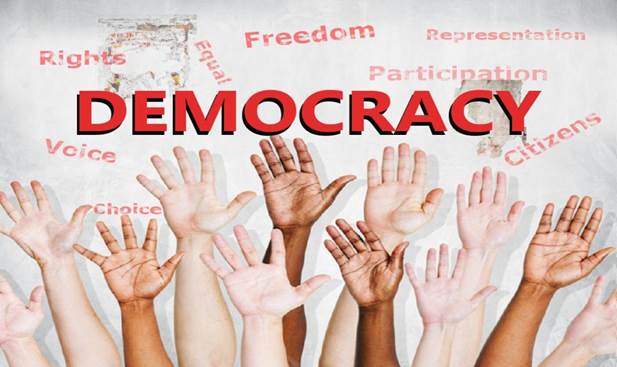Description

Copyright infringement not intended
In News
- According to the Democracy index released by the Economist Intelligence Unit “USA is categorized as a “flawed democracy,”.
- USA falls short of being a top-rated “full democracy” in large part because of a fractured political culture.
Details
- The Democracy Index is released by the Economist Intelligence Unit (EIU), the index attempts to measure the state of democracy in 167 countries.
- The index is based on 60 indicators grouped in five different categories:
- Electoral process and pluralism
- Civil liberties
- Functioning of government
- Political participation
- Political culture
- Full democracies are countries where civil liberties and fundamental political freedoms are respected and reinforced by a political culture that promotes democratic principles. These nations have a valid system of governmental checks and balances, an independent judiciary whose decisions are enforced, governments that function adequately, and diverse and independent media.
- Flawed democracies are countries where elections are fair and free and basic civil liberties are honoured but may have issues (e.g. media freedom infringement and minor suppression of political opposition and critics).
- Authoritarian regimes are countries where political pluralism is nonexistent or severely limited. These nations are often absolute monarchies or dictatorships and may have some conventional institutions of democracy but with meagre significance.

Significance of Democracy
- For long People have struggled for their Rights. It is generally believed that democracy is the best System to give Rights to People.
- Most modern States include People of different religions, languages, and Cultural traditions. But the National identity of a democratic State is Supposed to Provide Citizens with a Political identity that Can be Shared by all the members of the State.
- The democratic States usually try to define their identity So that it is as inclusive as possible, which allows all Citizens to identify themselves as Part of the Nation.
- Why Democracy?
- It Promotes equality among Citizens.
- Enhances the dignity of the individual.
- Improves the quality of decision-making.
- Provides a method to resolve Conflicts.
- Allows room to Correct mistakes.
- The Countries which have formal Constitutions, hold elections and form governments.
- Guarantee the Rights of Citizens.
- Solves the Social, Political and Economic Problems of the Country.
- Ending of Racial Discrimination;
- In South Africa, After Several decades of Struggle, the Policy of Racial discrimination toward blacks Came to an end in 1994 with Nelson Mandela being Sworn in as a Black President.
- Participation;
- For a Successful democracy, People need to Participate in its Governance.
- Participation through voting in elections. Other ways of Participation are Dharna, Rallies, Strikes, Signature Campaigns and other forms of Protests.
- Mass media like TV, Newspapers, Magazines and other agencies also play a major role in highlighting Public issues and moulding Public opinion.
- Resolve Conflicts;
- In any Country, Problems may result in Conflicts and lead to Social Tension.
- There may arise a situation when two people or two groups feel that they are not being treated fairly or are being discriminated against on grounds of Culture, Region, Religion, Economic background, Caste, Race, etc.
- It is the Government’s responsibility to resolve these Conflicts. EX- Interstate Rivers dispute.
- Equality and Justice;
- Ensure Justice and equality for all, they are two different Sides of the Same Coin and are essential in a democracy.
- Without Justice and equality democracy would remain meaningless and directionless.
- Accountable Government;
- Democracy is accountable because it is the government of the People and made by the People and for the People.
- Representatives elected by the People are responsible to them. If the People are not happy, they can change the leaders in the coming elections.
- Responsive Government;
- A Citizen has the right and the means to examine the process of decision-making. This type of transparency is not available in non-Democratic Governments.
- Ex - In the USA Civil Rights Movement of the 1960s restored the dignity of Afro-Americans based on Color.
- Legitimate Government;
- A democratic government is a legitimate government.
- It may be slow, less efficient, and not always very responsive or clean. But a democratic Government cannot ignore the needs of the People.
https://www.downtoearth.org.in/blog/governance/us-is-becoming-a-developing-country-on-global-rankings-that-measure-democracy-inequality-85111
https://t.me/+hJqMV1O0se03Njk9













